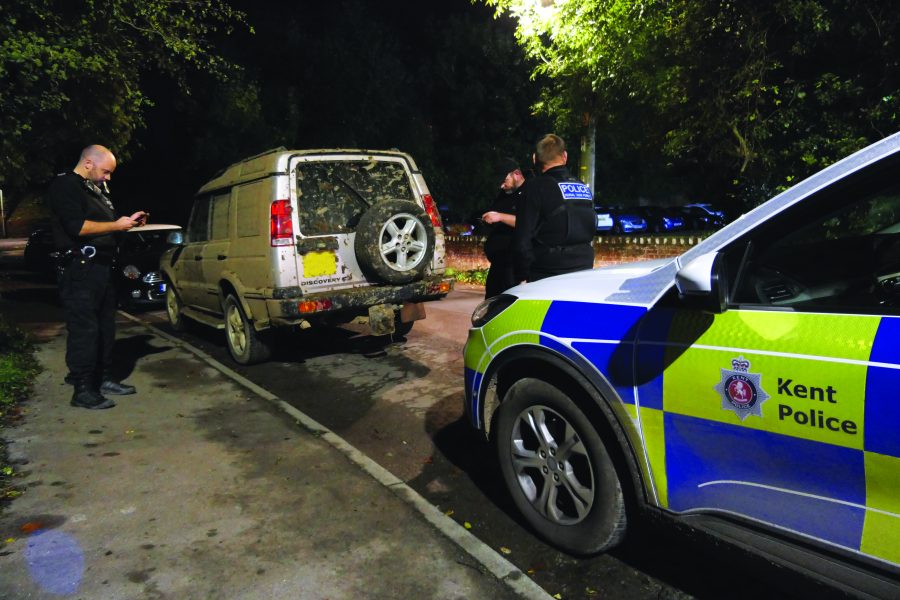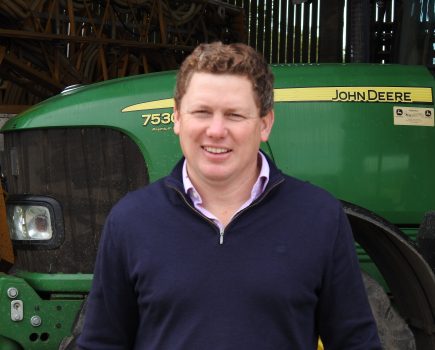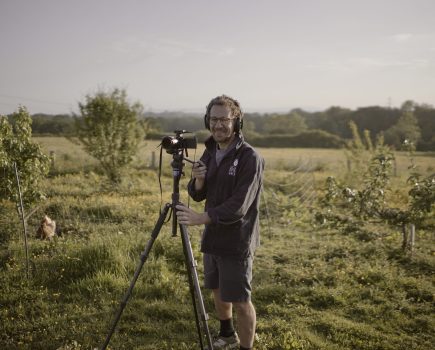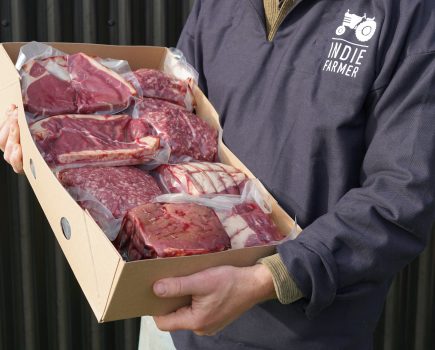What began as a routine traffic stop by Rural Task Force offers led to two men being charged with a serious offence and all four of them being interviewed on suspicion of poaching.
The black hatchback was pulled over on a tiny rural lane in countryside near Canterbury when the specialist team from Kent Police suspected the four men of being involved in criminal activity.
They found a badly injured pheasant in the boot and high-powered catapults, ball bearings and expensive head torches in the car, strong evidence that the group had been shooting game birds belonging to a nearby shoot.
What the officers didn’t expect was that two of the men would turn out to be linked with an incident the previous day in which a gamekeeper and pheasant rearer had been threatened with being shot after stopping the same car on his land.
The bonus arrest highlighted the impressive, community supported database of intelligence that the Rural Task Force has at its disposal when tackling the scourge of hare coursing, thefts, poaching and intimidation that blights the lives of so many farmers, country dwellers and rural businesses.
When the officers who saw the black car and suspected the men of being involved in poaching contacted colleagues, the second team checked out the vehicle registration on their database and discovered the link with the previous day’s terrifying incident.
It meant two of the four found themselves handcuffed and taken off to spend a night in the cells charged with threatening a person with an offensive weapon in a public place, while all four would later be interviewed regarding the alleged poaching offence.
The car was one of a number stopped during a special week-long operation mounted by the Rural Task Force to target the crimes that can make life stressful for gamekeepers, farmers and those living in quiet countryside areas. On the previous evening, officers patrolling near Maidstone had arrested a 63 year-old man on suspicion of drugs charges following a car chase after he failed to stop when asked to do so.
South East Farmer editor Malcolm Triggs joined Police Sergeants Darren Walshaw and Ross Haybourne on one of the patrols during the rural crime crackdown which saw police out in force in different areas across the county on successive nights.
On each occasion the force worked closely with local gamekeepers, farmers and landowners to make good use of the local ‘eyes on the ground’ and focus on likely poaching and hare coursing hotspots. On the night of the Canterbury arrests, the briefing took place not in a police ‘ops room’ but in a local farm office, and involved gamekeepers whose background knowledge was vital to the operation.
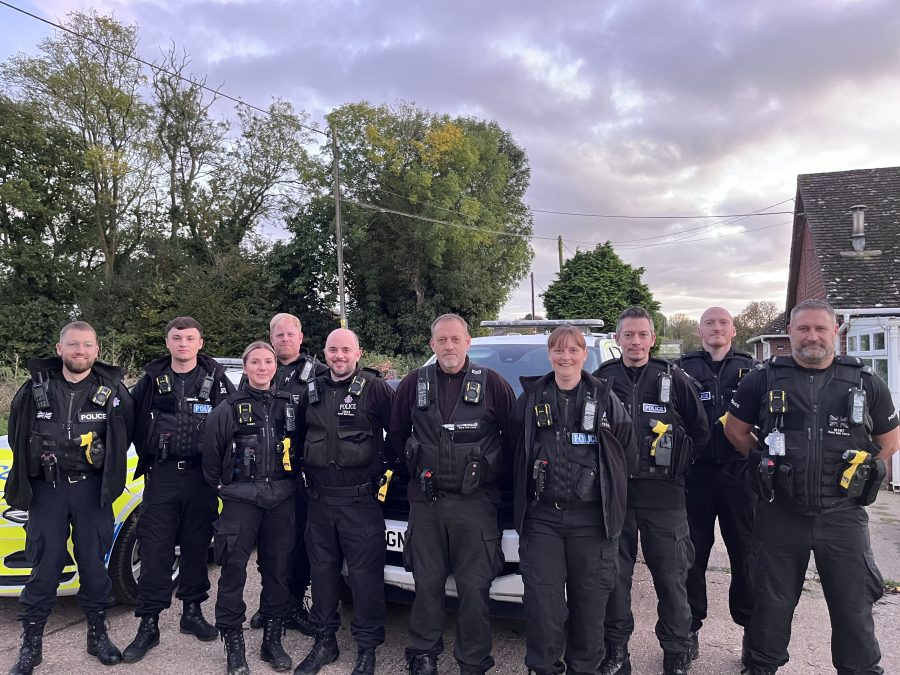
While ‘community policing’ is an easy enough sound bite to come up with, in the case of the Rural Task Force it has been turned into a reality by a dedicated team that knows that it is the farmers and landowners themselves who know what’s happening under cover of darkness in their own neighbourhoods.
“Rural crime is a significant issue for outlying areas, and it’s something that Kent Police has been treating as a priority. The Rural Task Force, supported by local intelligence that helps us maintain a database of vital information, is determined to crack down on offences that can have a huge impact on farmers, gamekeepers and those who live in the countryside,” said Darren.
“It would be easy to dismiss poaching as a low-value crime, but it’s not just losing a few birds which is the issue. Apart from the fact that this is someone’s livelihood, the perpetrators are at the same time scouting out the area, looking for poorly secured gates, valuable farm machinery left away from the yard or other easy pickings that they can come back for later.
“Hare coursing is another crime with far-reaching consequences, with four-by-fours ripping through standing crops as these people pursue their idea of sport with absolutely no concern for the landowner or his property,” Darren added.
The early part of the evening was relatively quiet but no less revealing. Darren and Ross stopped a number of vehicles to check that they weren’t involved in illegal activity, and while they were all going about their lawful business, they were without exception glad to see the force on patrol and happy to know that checks were being carried out.
“Nearly everyone we stop has a story to tell about a crime that has affected their business or their neighbourhood and we use these occasions to stress how important it is to get in touch and help us build up a picture of illegal activity in the area,” said Ross. “It’s rare for drivers who are obeying the law to get cross – they know we are trying to keep their community safe from crime.”
The week as a whole saw 10 arrests made, 14 vehicles seized and eight community protection warnings given out for poaching, with weapons, drugs and poaching equipment seized.
On the broader crime prevention and engagement front, offices marked 26 items of rural property to make it easy for them to be returned should they be stolen, and gave out 54 crime prevention kits.
“We also held seven community events to raise awareness of rural crime across the county and knocked on more than 140 doors to provide reassurance, advice and information to those living in isolated areas,” said Ross.
Property marking is a priority for the Rural Task Force, as it means victims can be reunited with their possessions. “It’s great to lock up thieves and recover stolen goods, but that’s only half the story,” said Darren. “We want to give things back to their owners, but that’s often impossible.”
His frustration is brought into sharp focus by the statistics. Since the start of this year, the force has recovered property valued at £2.5 million, including 11 caravans and motorhomes, nine other vehicles, five quad bikes, six diggers, four motorbikes, two tractors, seven trailers and two horse boxes.
“We have also seized several different types of plant, including a forklift truck and fuel bowser, and around 4,000 stolen power tools,” said Darren. “The good news is that we’ve reunited almost all the caravans, vehicles and tractors with their owners, but we really struggle with the tools as most of them, despite often being expensive, are unmarked.
“It really is vital that owners mark their property. There’s nothing we like better than giving stolen goods back, but we can’t do that if we don’t know who they belong to. For property marking advice just get in touch with rural.task.force@kent.police.uk”
Spending time with Darren and Ross was a useful insight into the lengths to which the force is going to protect residents, farmers, landowners and business owners in vulnerable rural areas and the way in which they are making the most of the depth of information available from the experts – those who live in the area.
“You may think it’s trivial or that because it happened a few days ago it’s no longer relevant,” summed up Ross, “but every piece of information, however small, helps us to paint a complete picture of criminal activity in the area and then tackle it. So please get in touch with any information you have.”
*The two men charged with threatening the gamekeeper were due to appear at court on 7 November.
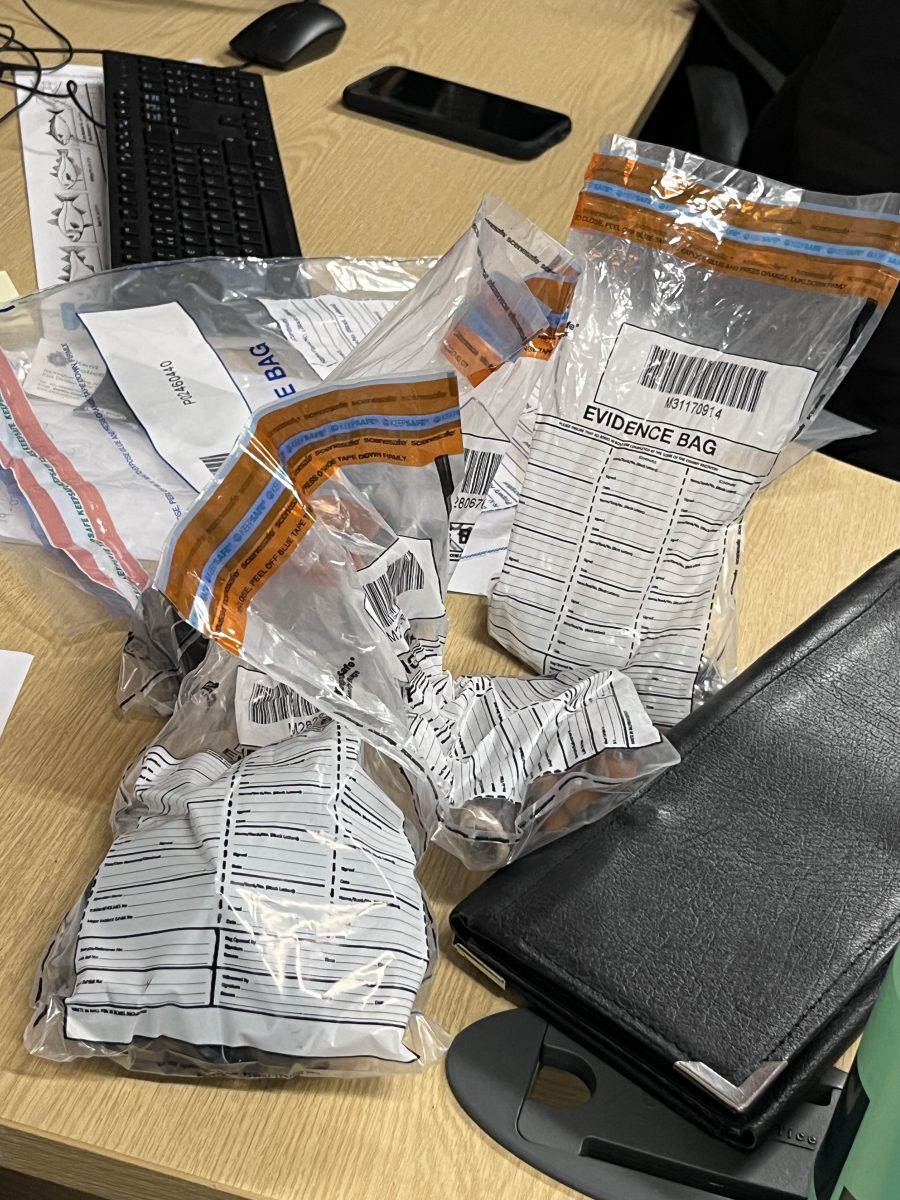
Advanced drone technologies
Farmers learned about the advanced drone technologies used by Sussex Police to tackle rural crime at an NFU-organised event that was also part of the national Rural Crime Week event.
After demonstrating the art of drone flying, PC Steve Prince helped NFU farmer members and their teams have a try at operating the machines for themselves.
The event took place on NFU member David Spanton’s farm near Heathfield, East Sussex, and followed a meeting a few days earlier at which NFU members discussed key rural crime issues with Sussex Police Chief Constable Jo Shiner and Sussex Police and Crime Commissioner Katy Bourne.
NFU West Sussex Chair Andrew Strong said: “This was a great event and we were very impressed by what we saw. This drone technology being used by Sussex Police should make a real impact. The technology is getting so advanced it’s got to help, and the enthusiasm of the officers using it is clear to see.”
Drones allow the police to search large rural areas more quickly, use resources more effectively and keep the emergency services and the public safe when used in dangerous areas. They also provide good quality evidence.
Andrew said: “We are having some big issues with rural crime in Sussex, particularly with quad bike theft and hare coursing, but the rural crime team is doing its best and working with us as much as they can.
“We spoke today about the police using farms as a base for drone pilots and that regular police presence will in itself deter criminals. This is another great example of the positive relationship between the police and Sussex farmers.
“They have got our backs and anything we can do like this to help the police and help ourselves has to be a good thing.”
Farmers also took the opportunity to speak to Sussex Police Rural Crime Team Sergeants Ed Bowles and Tom Carter about the issues they are facing.
Sgt Bowles said: “We started using drones in 2014 and their use has increased each year. Drones are an invaluable resource. The technology is improving all the time, and they are an extra tool we use in fighting rural crime.”
Read more on the NFU’s call for action during Rural Crime Week at www.nfuonline.com/updates-and-information/national-rural-crime-action-week
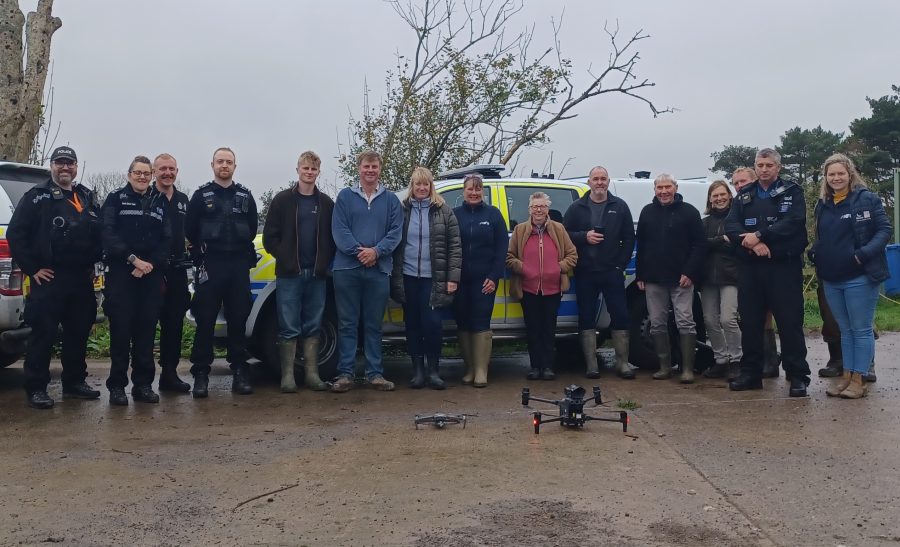
For more like this, sign up for the FREE South East Farmer e-newsletter here and receive all the latest farming news, reviews and insight straight to your inbox.

